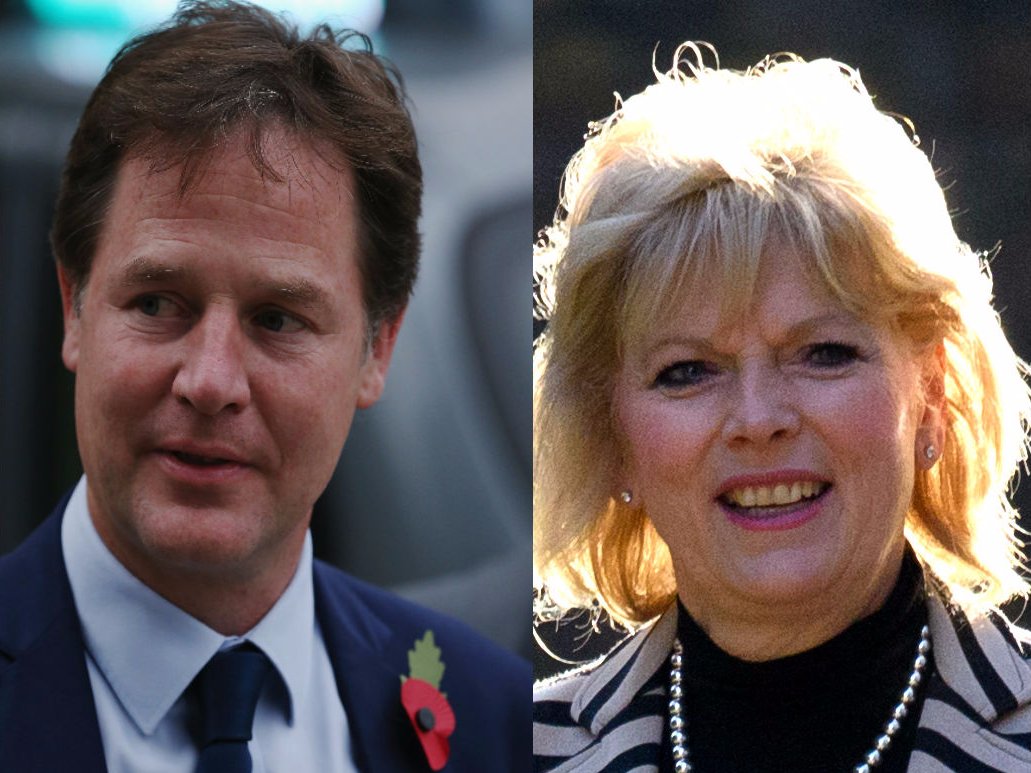
LONDON — Prominent MPs from all of Britain’s main political parties are calling for the government to “put UK membership of the Single Market at the heart of their negotiating strategy” for Brexit or risk damaging the economy.
Labour’s former shadow business secretary Chuka Umunna, former Tory cabinet minister Anna Soubry, and former Liberal Democrat party leader and Deputy Prime Minister Nick Clegg are uniting at an event on Monday to urge Prime Minister Theresa May not to “cherry pick” trade deals for sectors.
Soubry will dismiss Brexiteers’ vision of post-EU Britain enjoying “all the benefits with no obligations” as “a simplistic fantasy” in her speech, while Clegg is expected to say: “They will soon have to admit the easy answers they peddled during the campaign will not work in reality.”
It comes as Polish Prime Minister Beata Szydlo warns that Britain will have to “compromise” in negotiations with the EU, the latest signal that Britain will be unable to secure an economically beneficial Brexit deal while also curbing immigration.
The quotes from Umunna, Soubry, and Clegg are provided by Open Britain, the pro-European lobbying group created out of the ashes of the official Remain campaign. All three MPs were Remain campaigners and support Open Britain.
The trio will speak on Monday at the launch of a new report from the Centre for Economics and Business Research (CEBR), commissioned by Open Britain, that concludes all parts of the economy will be damaged by a so-called “hard Brexit” — Britain severing all ties with Europe, including leaving the Single Market, in order to control immigration.
CEBR report concludes that: “There appears to be no single sector whose economic characteristics… do not link closely to and benefit from trading within the EU’s single market today.”
A leaked report from the Treasury earlier this year estimated that the UK will lose £66 billion a year in lost revenue as a result of a “hard Brexit” and last week’s Autumn Statement revealed that even before Brexit occurs, June’s referendum has blown a £59 billion hole in public finances.
The CEBR report says: “A sector-by-sector approach, which seeks to prioritise or choose ‘winners’ in isolation of others, therefore, cannot be achieved without the risk of creating ‘losers’ through reduced access and reduced future mutual benefits.”
Theresa May gave Japanese car manufacturer Nissan a secret deal reassuring the company of no negative effects from Brexit in October, which neither side have been willing to publically disclose. It led the Financial Times to conclude that May’s Brexit business strategy will be to “choose which sectors of the economy to defend and which not.”
Labour’s Umunna will say: “Cherry-picking winners creates losers, and I am not aware of anyone proposing or voting for creating economic losers.”
CEBR says that manufacturing, retail, support services, financial and professional services and the energy sector would all be “negatively impacted” by the UK leaving the Single Market. It adds that the tech sector “could be damaged by tighter migration controls and restricted access to a future deeper Single Market.”
Soubry, who was Minister for Small Business under David Cameron, says: “
“Today we are posing a challenge to those who want the UK to leave the Single Market. Those who talk of a new trade deal – like Canada’s but better – as if the benefits would be comparable to Single Market membership and easily achievable.
“They say we can end free movement; stop making any financial contributions; and be free from the jurisdiction of the ECJ, yet continue to enjoy the same terms of trade we have today. There are no inevitable outcomes. There is no mandate for one particular Brexit option. The only question on the ballot paper was whether to leave, which we will, but how we execute our extraction must be debated.”
“The best future for Britain’s economy lies within the Single Market.”
Soubry is a vocal critic of Brexit and the current government’s Brexit plans, telling Business Insider last month that “hard Brexit” is a “bonkers” plan.
Clegg, who was Deputy Prime Minister from 2010 to 2015, adds: “It is incumbent on all those who want to leave the Single Market to tell us which parts of the EU’s market framework they will refuse to comply with and to be clear about the impact on free trade access.”
The BBC reports on Monday that the government could face a legal battle over pulling Britain out of the EU’s Single Market, arguing that Parliament must decide on Britain leaving the European Economic Area (EEA) separately from a vote on leaving the EU.
NOW WATCH: The real estate tricks billionaires use to sell their penthouses faster and for more money













